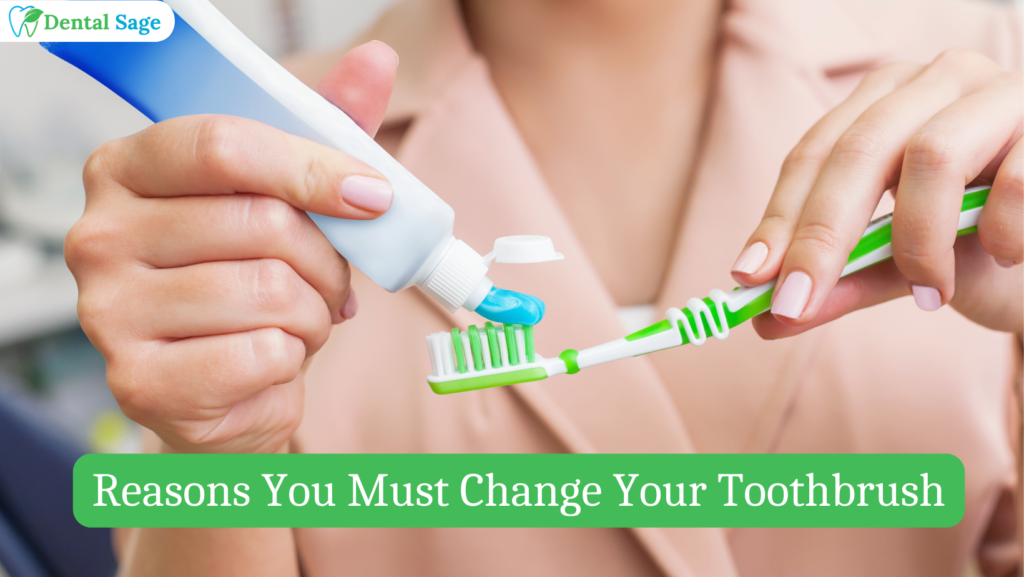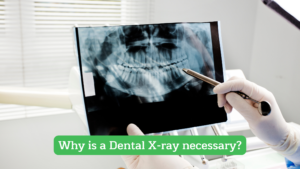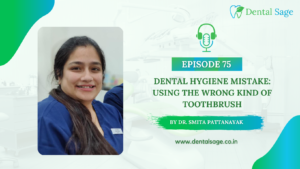Dental Clinic in Yelahanka Near Me | Dental Sage
We all understand that our toothbrushes are not meant to last forever. It is difficult to figure out when the bristles are nearing their lifespan. As per dentists and toothbrush manufacturers, it is advised to replace your toothbrush every 12 to 16 weeks. Sometimes, you may be required to replace them sooner. If you neglect or miss replacing your toothbrush regularly, you might be prone to infections that can affect your dental health.
How Frequently Should You Change Your Toothbrush?
Your toothbrush is the first shield against bacteria that cause tooth disease, bad breath, or gum disorders. An easy grip, clean brush with straight bristles can easily navigate through your teeth and clean thoroughly. A soft-bristled brush is more helpful in cleaning food particles and bacteria collected around your teeth base.
Following the standard recommendation of brushing for two minutes twice per day can guard your teeth against cavities. Tooth decay can be prevented if you take extra precautions to brush your teeth after every meal or snack after sugary items. Brushing twice a day is considered appropriate for a manual toothbrush, and at this rate, the bristles of your brush start wearing out, twisted or mangled by about three to four months. Once bristles lose their stiffness, it is time to get them into the trash.
05 Important Reasons to Change your Toothbrush
You may miss out on an important aspect of dental care if you do not replace your toothbrush often. Here are five important reasons to understand why you must change your toothbrush regularly.
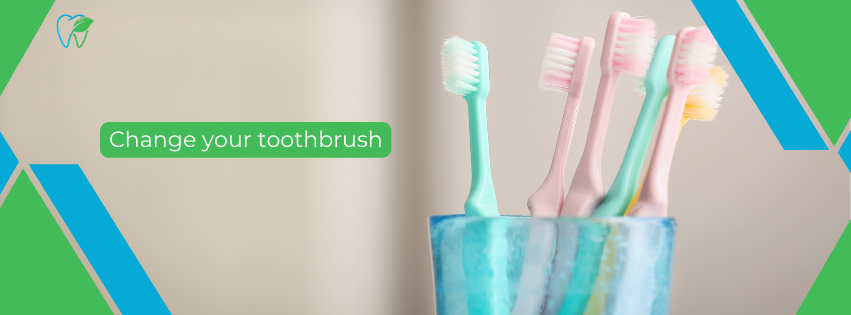
1. Bacterias dwelling on the toothbrush
Your toothbrush fights a build-up of bacteria that can result in bad breath, plaque, tooth decay, or gum disease. If the same brush is used for a long period of time, your toothbrush may become a dwelling for many germs and bacteria. Therefore, it is crucial to disinfect and rinse your toothbrush with a mouthwash after use. Hence, it is ideal to change them every three to four months.
2. Chances of gum stagnation
Continuously using a worn-out brush can affect your gum health. This happens when damaged bristles become abrasive that can lead to damaged soft tissue, and cause too much enamel erosion. There are several other reasons like brushing too hard or non-effective brushing that can decline gum health. This causes gum tissues to damage that will otherwise not regrow once lost.
3. Reinfection post illness
If you have been ill and used your toothbrush during your sickness, then there are good chances of bacteria making their way onto the brush from your mouth while brushing. Hence, it is important to replace or disinfect your toothbrush as soon as you recover from your illness to avoid any reinfection.
4. No longer solves the purpose
Brushing with the same toothbrush will lose its stiffness making it difficult for the brush to fight-out plaque and food leaving it ineffective and useless. Furthermore, using the same brush does not work well in cleaning the built plaque that can lead to other gum diseases. Your gums can start bleeding with further deterioration of your gums leading to some serious gum disease. To avoid things getting worse, it is recommended to shove that old toothbrush.
5. Brushing more frequently
Some people are addicted to brushing more often or too hard for various reasons like brushing after every meal, brushing post having sugary snacks, or being more vigilant about oral health. More brushing, the more the bristles wear out, and in such cases, toothbrushes need replacement more frequently. Aggressive brushing techniques are also very damaging to your teeth enamel can slump your gum health which is irreversible damage. Thus, replacing your manual brush with an electric brush will be much better.
Tips to improve oral health and hygiene
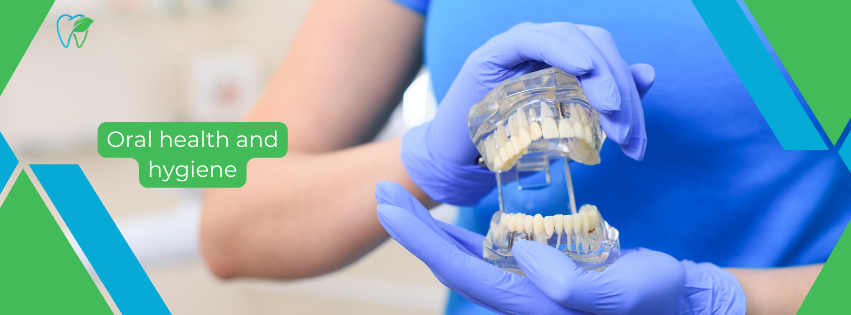
Here are a few quick tips that can help you improve your oral hygiene and overall dental health.
● Change your toothbrush every 12 to 16 weeks.
● Frequently disinfect your toothbrush with hot water, mouthwash, or denture cleaner after use.
● Can shift to an electric toothbrush if you are used to aggressive brushing.
● Safeguard your oral health with a regular dental health check-up at the best dental clinic in Yelahanka Near Me for any symptoms like bad breath or bleeding gums.
● Gum inflation cannot be treated but there are some ways to restore your gums and smile.
Your toothbrush is an important hygiene tool for your oral health. Proper maintenance like cleaning and drying it upright can improve your toothbrush’s lifespan. Plan and replace your toothbrush every three to four months and make a point to keep replacing regularly.

